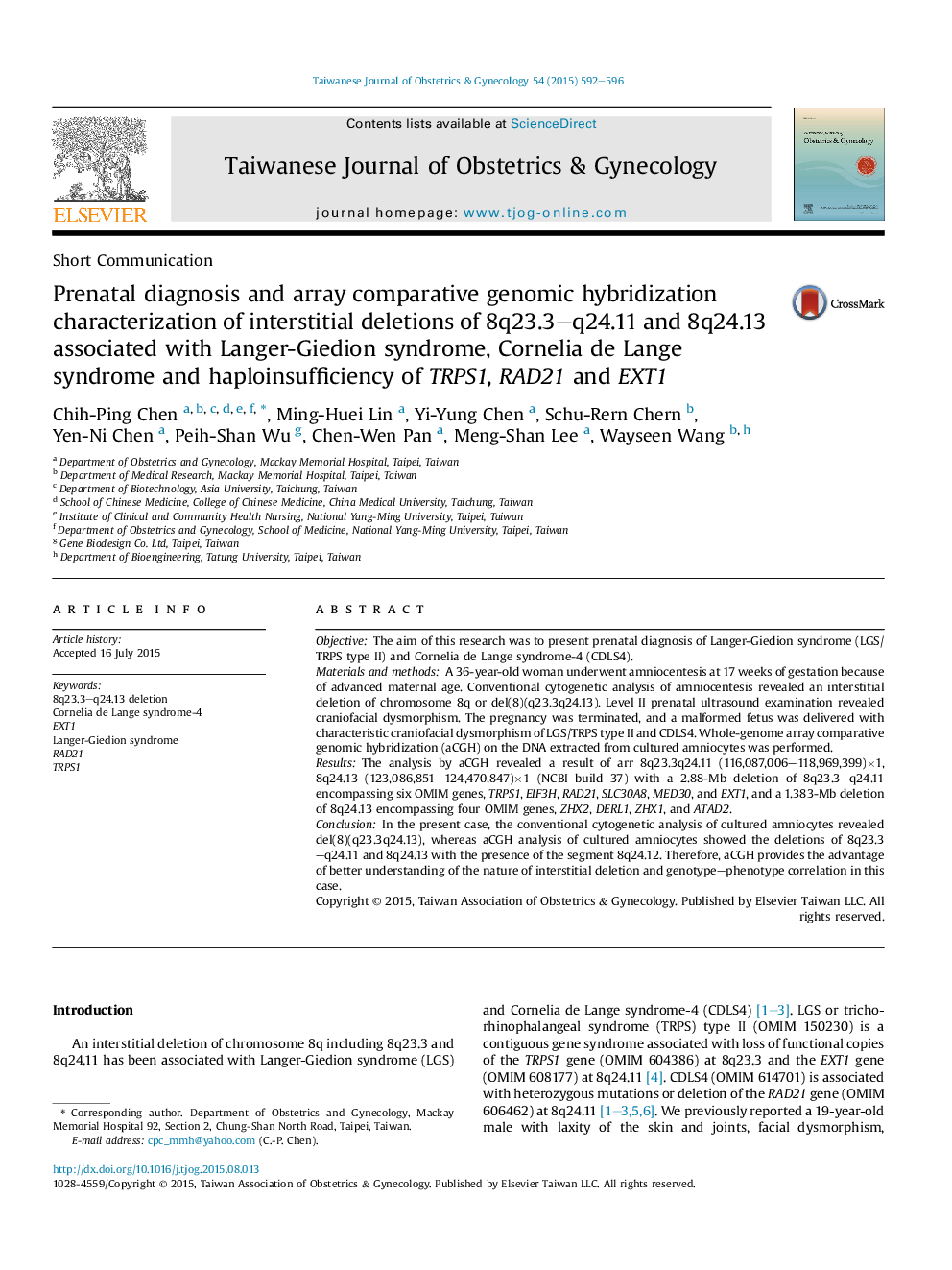| Article ID | Journal | Published Year | Pages | File Type |
|---|---|---|---|---|
| 3975485 | Taiwanese Journal of Obstetrics and Gynecology | 2015 | 5 Pages |
ObjectiveThe aim of this research was to present prenatal diagnosis of Langer-Giedion syndrome (LGS/TRPS type II) and Cornelia de Lange syndrome-4 (CDLS4).Materials and methodsA 36-year-old woman underwent amniocentesis at 17 weeks of gestation because of advanced maternal age. Conventional cytogenetic analysis of amniocentesis revealed an interstitial deletion of chromosome 8q or del(8)(q23.3q24.13). Level II prenatal ultrasound examination revealed craniofacial dysmorphism. The pregnancy was terminated, and a malformed fetus was delivered with characteristic craniofacial dysmorphism of LGS/TRPS type II and CDLS4. Whole-genome array comparative genomic hybridization (aCGH) on the DNA extracted from cultured amniocytes was performed.ResultsThe analysis by aCGH revealed a result of arr 8q23.3q24.11 (116,087,006–118,969,399)×1, 8q24.13 (123,086,851–124,470,847)×1 (NCBI build 37) with a 2.88-Mb deletion of 8q23.3–q24.11 encompassing six OMIM genes, TRPS1, EIF3H, RAD21, SLC30A8, MED30, and EXT1, and a 1.383-Mb deletion of 8q24.13 encompassing four OMIM genes, ZHX2, DERL1, ZHX1, and ATAD2.ConclusionIn the present case, the conventional cytogenetic analysis of cultured amniocytes revealed del(8)(q23.3q24.13), whereas aCGH analysis of cultured amniocytes showed the deletions of 8q23.3–q24.11 and 8q24.13 with the presence of the segment 8q24.12. Therefore, aCGH provides the advantage of better understanding of the nature of interstitial deletion and genotype–phenotype correlation in this case.
